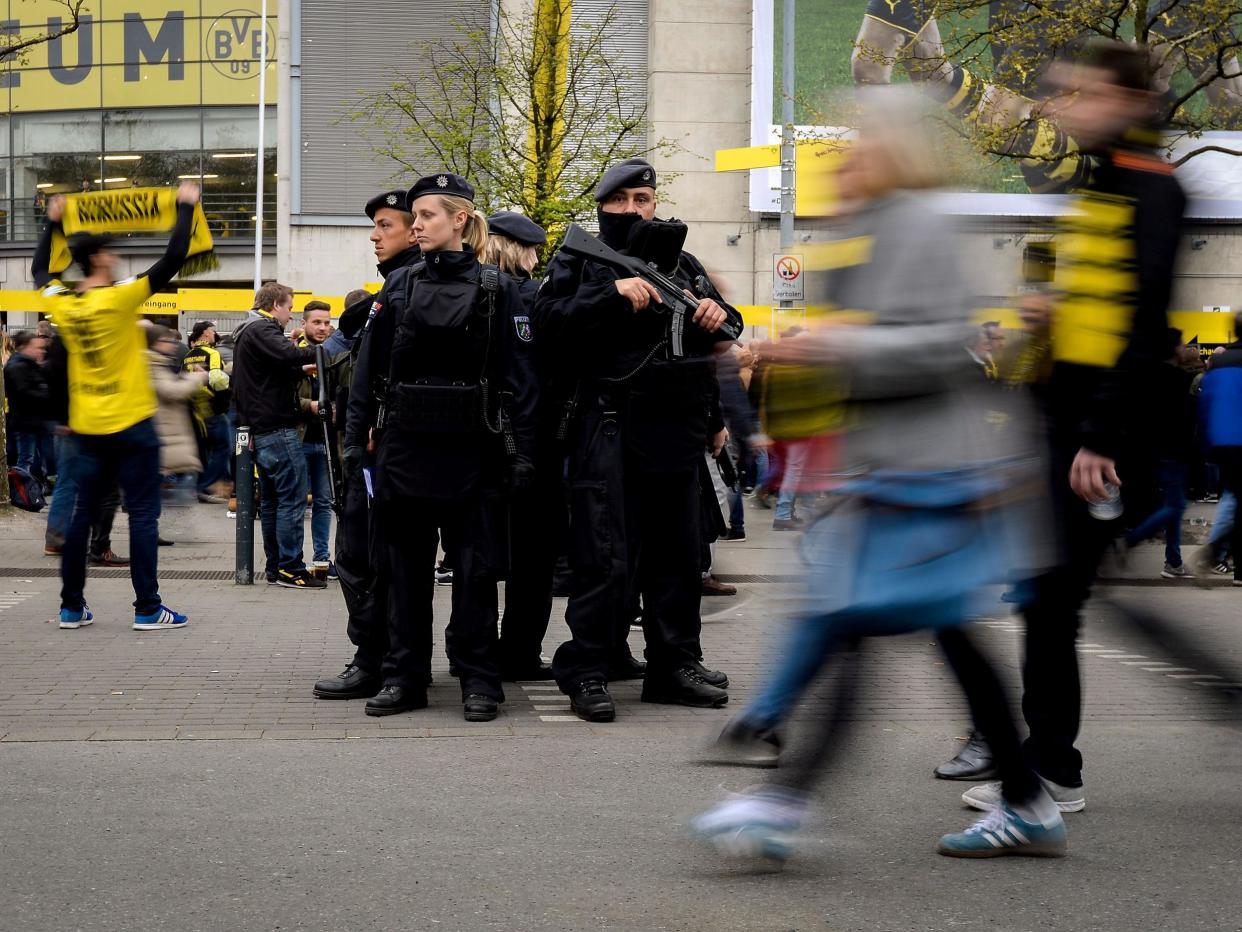In the rush to blame radical Islamists for terror incidents, we are inadvertently handing them more power

You could say the road to hell is paved with good intentions. But there is a more blunt way to put this: if we want to fight terrorist groups, we need to stop inadvertently helping them in their quest.
Yesterday it emerged the man behind Germany’s Dortmund team bus attack wasn’t inspired by Isis but by greed. The German-Russian man now charged with attempted murder wanted to make money from a fall in the football club’s share price.
The aim of the Dortmund bomber was clear: to prey on our fear of Isis and terrorism to commit a crime. If it wasn’t for his amateur attempt at framing the attack, which raised the suspicion of some journalists too, he would have gotten away with it.
But we are also becoming partly complicit in this equation. Within minutes of almost any major crime in a western country, social media is full of people claiming it was committed by Islamists. There is a ready online army of far-right opportunists who leap on any incident before facts have been established. Journalists who call for caution and firm evidence aren’t just ignored – they are frequently accused of being “jihadi apologists”. Media overreaction has become normalised (though the Westminster attack was handled relatively well).
Here’s the problem. This makes it harder for the police to capture the real culprits, because they and the public are influenced by the media narrative. But worse, it actually helps Isis, too. The terror group grows through prominence, attracting more recruits and money than its rivals. Local people in Syria and Iraq are also less likely to fight against an army with a fearsome reputation. Its reputation is enhanced through us.
This isn’t the first time an attack has been mistakenly attributed to jihadism either. The Quebec terrorist attack in January was initially blamed on Muslims; Donald Trump Jr even thought it would help his father. In the same month a rampage in Melbourne was also blamed on Muslims and migrants – it turned out to be a man of Greek origin with drug-related issues.
After the deadly shooting at the gay club in Orlando last year, it was first assumed Omar Mateen had been directed by Isis. Later there were reports he was a regular and used gay-dating apps. Even later the CIA confirmed he had had no direct contact with Isis. Moreover, there have been numerous arrests that have looked like FBI sting operations.
This is not to say we should ignore Isis-inspired terrorism. We need to fight the threat and the ideology that underpins it. But by blaming it for everything we are building it into a more powerful enemy than it actually is.
The attack on police in Paris this week, just days before the elections, clearly illustrates the group wants Marine Le Pen to win. Isis needs European leaders to overreact and polarise people. They want the West to start new wars in the Middle East. They want to inspire terror, they want us to cower in their influence and power. Let’s not give them what they want.

 Yahoo News
Yahoo News 
